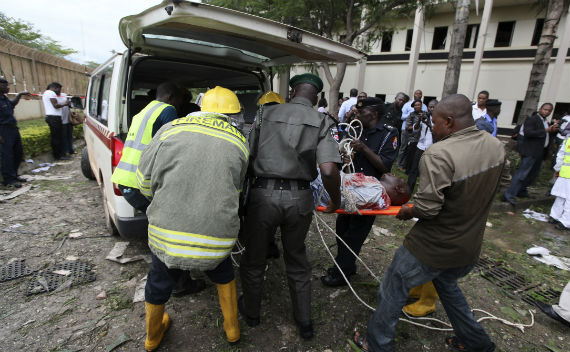Bombing of the UN Headquarters in Nigeria
By experts and staff
- Published
By
- John CampbellRalph Bunche Senior Fellow for Africa Policy Studies

Today’s horrific suicide bombing of the United Nations building in Nigeria’s capital of Abuja is likely to focus attention on Boko Haram, a radical Islamic group that has been carrying out terrorist attacks against President Goodluck Jonathan’s government. An alleged Boko Haram spokesman has already claimed responsibility, and it is likely to be blamed by the Nigerian authorities and international observers.
But other groups in the past have carried out bomb attacks in Abuja. It was the Movement for the Emancipation of the Niger Delta (MEND) that carried out a car bomb attack that disrupted Nigeria’s fiftieth anniversary ceremonies on October 1, 2010. It has the capacity to carry out today’s attack, and it has a history of attacking foreign installations, especially oil production facilities. Boko Haram, at least up to now, has only attacked Nigeria government facilities and personnel, not foreigners.
Boko Haram has been an indigenous, grassroots insurrection against a discredited Abuja government and against the traditional northern Nigerian Islamic establishment. It has not been a part of an international terrorist movement, though doubtlessly there have been contacts with al-Qaeda in the Maghreb and al-Shabab. Boko Haram appears to be decentralized in its leadership without a charismatic leader or a politburo. The Abuja government has not sought to address the deep-seated discontent of the Muslim north that underpins support for Boko Haram, but rather has imposed a heavy and often brutal security presence under the justification of anti-terrorism.
If the Abuja attacks today prove to have been carried out by Boko Haram, it is likely that the West and international organizations have come to be identified with the Abuja government. That would be bad news for the United States, as northern Nigeria has one of Africa’s largest Muslim populations.